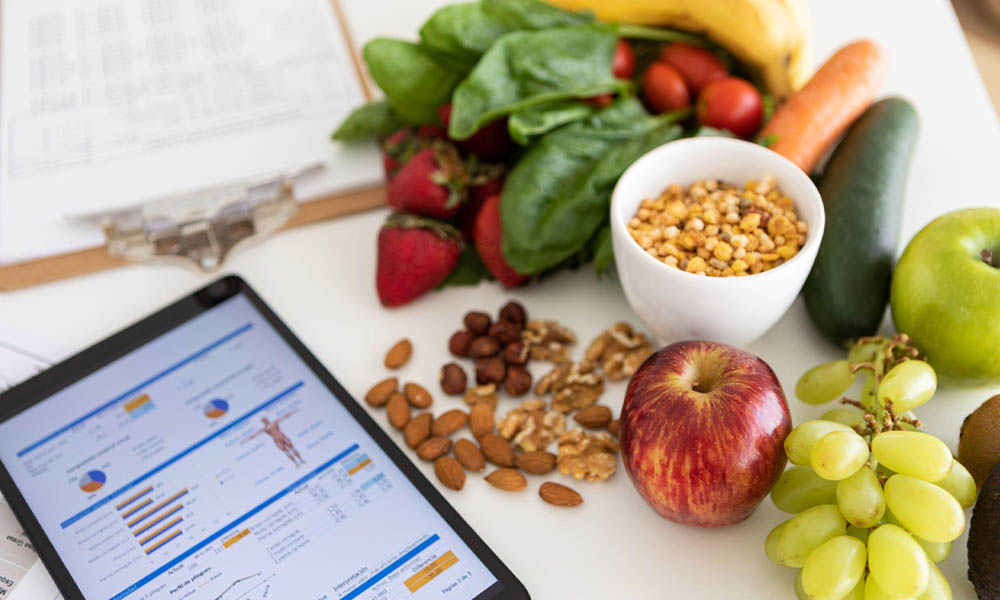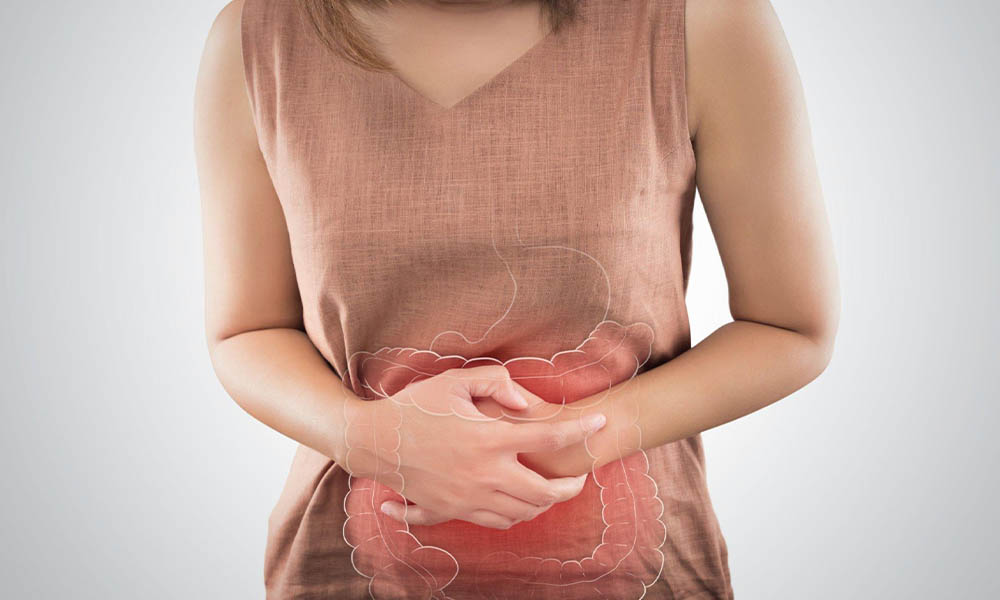If you’re trying to lose weight, you may have tried many different diets and exercise programs. But have you considered the role of fiber in your weight loss journey? Fiber is often overlooked when it comes to weight loss, but it’s a secret weapon that you didn’t know you needed. Not only does fiber keep you feeling full for longer, but it also helps regulate blood sugar levels, lowers cholesterol, and promotes healthy digestion.
In this article, we’ll explore the benefits of fiber-rich foods for weight loss, how much fiber you should aim for in your daily diet, and the best sources of fiber to incorporate into your meals.
Table of Contents
ToggleHow Fiber Aids in Weight Loss

Fiber is a type of carbohydrate that your body cannot digest. Instead, it passes through your digestive system mostly intact, providing bulk to your stool and promoting regular bowel movements. This bulk also helps you feel full for longer periods, reducing the overall amount of food you eat. Fiber can also slow down the absorption of sugar into your bloodstream, which can help regulate blood sugar levels and prevent spikes that can lead to cravings and overeating.
Some types of fiber, such as soluble fiber, can also bind to cholesterol in your digestive system and help remove it from your body. This can lead to lower levels of LDL or “bad” cholesterol and a reduced risk of heart disease. In addition, fiber can also help promote the growth of healthy gut bacteria, which can improve digestion and overall health.
The Recommended Daily Intake of Fiber
According to the Dietary Guidelines for Americans, the recommended daily intake of fiber is 14 grams per 1,000 calories consumed. For most adults, this works out to be around 25-30 grams per day. However, many people fall short of this goal, with the average American consuming only around 15 grams of fiber per day.
Increasing your fiber intake slowly over time can help prevent digestive discomfort and allow your body to adjust to the increased bulk. It’s also important to drink plenty of water when increasing your fiber intake, as fiber absorbs water and can cause constipation if you don’t stay hydrated.
Foods High in Fiber

The best sources of fiber are whole, plant-based foods such as fruits, vegetables, whole grains, beans, and nuts. These foods not only contain fiber but also provide other essential nutrients and antioxidants that can improve overall health. Here are some examples of high-fiber foods:
- Apples: 4 grams of fiber in a medium-sized apple
- Avocado: 10 grams of fiber in a whole avocado
- Black beans: 15 grams of fiber in 1 cup of cooked black beans
- Chia seeds: 11 grams of fiber in 1 ounce of chia seeds
- Lentils: 16 grams of fiber in 1 cup of cooked lentils
- Oats: 4 grams of fiber in 1/2 cup of rolled oats
- Raspberries: 8 grams of fiber in 1 cup of raspberries
- Sweet potatoes: 5 grams of fiber in 1 medium-sized sweet potato
Incorporating a variety of these foods into your diet can help you reach your daily fiber goal and keep you feeling full and satisfied throughout the day.
Incorporating More Fiber into Your Diet
If you’re not used to eating a lot of fiber, it can be challenging to incorporate more into your diet. Here are some tips to help you increase your fiber intake:
- Add fresh fruit to your breakfast cereal or oatmeal
- Snack on raw vegetables such as carrots, celery, and bell peppers
- Swap out refined grains for whole grains such as brown rice, quinoa, and whole-wheat pasta
- Add beans or lentils to soups, salads, and stir-fries
- Choose high-fiber snacks such as popcorn, nuts, and seeds
- Use avocado as a healthy fat source in sandwiches, salads, and dips
The Benefits of a High-Fiber Diet Beyond Weight Loss

In addition to aiding in weight loss, a high-fiber diet can have numerous other health benefits. These include:
- Lowered risk of heart disease: Studies have shown that a high-fiber diet can lower LDL or “bad” cholesterol levels and reduce the risk of heart disease.
- Improved digestion: Fiber can help prevent constipation and promote regular bowel movements.
- Reduced risk of certain cancers: A high-fiber diet has been linked to a reduced risk of colorectal cancer.
- Better blood sugar control: Soluble fiber can slow down the absorption of sugar into the bloodstream, helping to regulate blood sugar levels.
Common Misconceptions About Fiber and Weight Loss
There are several misconceptions about the role of fiber in weight loss. One of the most common is that all types of fiber are the same. In reality, there are two types of fiber: soluble and insoluble. Soluble fiber dissolves in water and forms a gel-like substance in the digestive system, while insoluble fiber does not dissolve and provides bulk to the stool. Both types of fiber are important for overall health but have slightly different effects on the body.
Another misconception is that fiber can cancel out the calories in other foods. While fiber can help you feel full, it doesn’t change the number of calories in the food you’re eating. However, incorporating high-fiber foods into your diet can help you feel more satisfied with smaller portions and reduce overall calorie intake.
Possible Side Effects of Consuming Too Much Fiber

While fiber is essential for overall health, consuming too much fiber can lead to digestive discomfort such as bloating, gas, and diarrhea. It’s important to increase your fiber intake slowly and stay hydrated to avoid these side effects.
If you have a medical condition such as inflammatory bowel disease or have had recent abdominal surgery, it’s important to talk to your doctor before increasing your fiber intake.
Fiber Supplements and Their Effectiveness

While it’s best to get your fiber from whole foods, fiber supplements can be a convenient way to increase your fiber intake. However, it’s important to choose a high-quality supplement and follow the recommended dosage. Some common types of fiber supplements include psyllium husk, methylcellulose, and glucomannan.
It’s important to note that fiber supplements should not be used as a replacement for a healthy diet and should be used in conjunction with a balanced diet and regular exercise.
Frequently Asked Questions About Fiber-Rich Foods for Weight Loss
How can fiber help me feel fuller for longer?
Fiber helps you feel fuller for longer because it takes longer to digest than other types of carbohydrates. This means that when you eat fiber-rich foods, they stay in your stomach for longer periods of time, which can help you feel satisfied and reduce the amount of food you eat overall.
Can eating fiber-rich foods help me lose weight?
Yes, eating fiber-rich foods can help you lose weight because they tend to be lower in calories and can help you feel fuller for longer periods of time. By reducing your overall calorie intake and making it easier to stick to a healthy diet, fiber-rich foods can be an effective tool for weight loss.
How much fiber should I aim to eat each day for weight loss?
The recommended daily intake of fiber varies depending on your age, sex, and level of physical activity. In general, most adults should aim to eat at least 25-30 grams of fiber per day for optimal health and weight loss.
Are there any risks to eating too much fiber?
While fiber is generally safe and healthy to eat, eating too much fiber can sometimes cause digestive issues like bloating, gas, or diarrhea. It’s important to gradually increase your fiber intake and drink plenty of water to help your body adjust. If you have any concerns or experience persistent digestive issues, you should consult a healthcare professional.
Conclusion
Fiber is a powerful tool for weight loss that is often overlooked. By incorporating more high-fiber foods into your diet, you can feel fuller for longer, regulate blood sugar levels, lower cholesterol, and promote healthy digestion. Remember to increase your fiber intake slowly and stay hydrated to avoid digestive discomfort. With a little effort, you can harness the power of fiber and achieve your weight loss goals.


